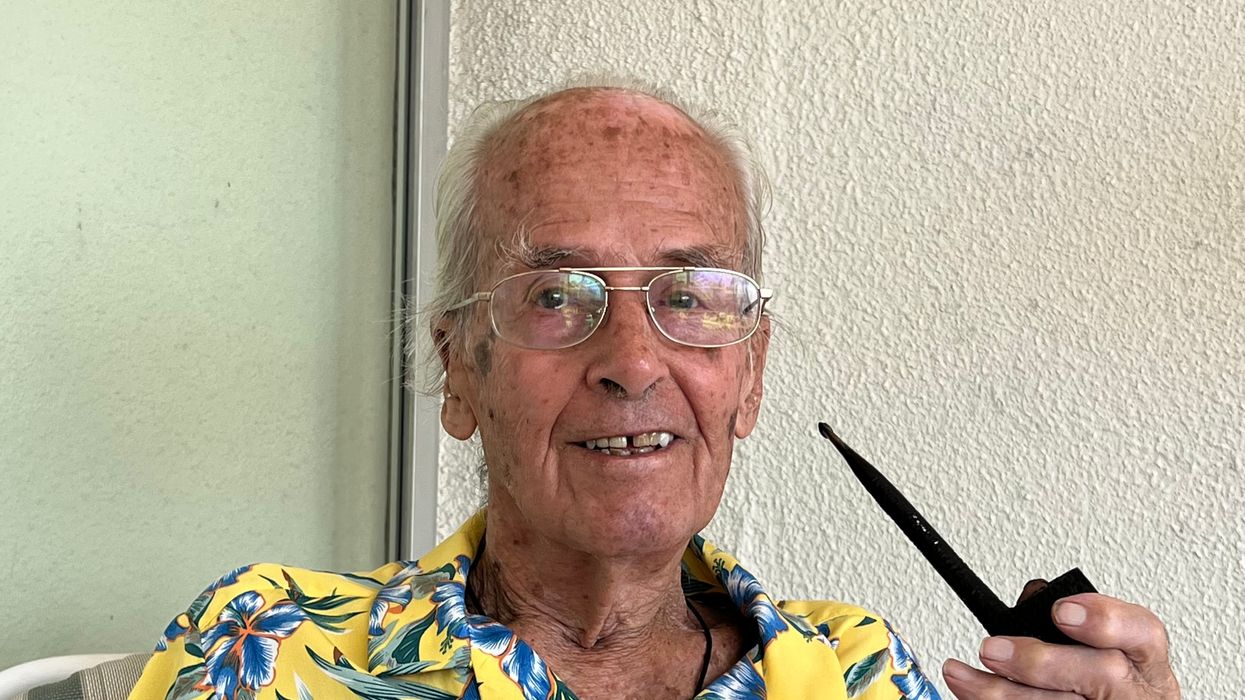Clancy is co-founder of Citizen Connect and board member of the Bridge Alliance Education Fund. Citizen Connect is an initiative of the Bridge Alliance Education Fund, which also operates The Fulcrum.
I attended a beloved neighbor’s 101st birthday party recently. Bill Fichtel is the heart and soul of our Florida community, and as he began speaking we all leaned in to savor his wit and wisdom. It occurred to me in that moment that Bill’s insights should be shared more broadly. During this crazy election year, America needs more voices offering authentic wisdom — not just spin and finger pointing.
Given his military service and the friends he lost in World War II, Memorial Day felt like the ideal time to celebrate this amazing man. Much has been written about the Greatest Generation, but spending time with its members really brings to life what made them so special. For all that’s changed in the world, I’m convinced that Bill and his remarkable generation have timeless guidance for us all. I’m confident you’ll find his life lessons very relevant to the challenges we’re facing today at home and around the world.
Bill’s lessons to live by:
1. Focus on gratitude and a commitment to paying it forward — not anger or regrets. Talking about the friends he lost in the war, Bill said that what bothers him most is that they “never saw the good things,” like having a family. That opportunity to live a rich and meaningful life is “what the people we lost saved for us” and Bill has embraced that gift in so many ways — including having a wonderful family and being a leader in his community and his church.
2. It’s the simple things in life that really matter. We talked a lot about the source of that insight. Bill thinks growing up in the Depression and surviving the war both played a role in deeply appreciating this fact. Bill believes it’s harder to focus on what really matters today. “We lived a simple life and didn’t expect everything — we weren’t badgered by TV telling us everything we could have or do,” he said. He didn’t mention smartphones and social media, but I will.
3. Put country and core values over politics. Politics has always been more personal and local for Bill — which has kept him from being swept up into today’s toxic partisanship. “I’m not big on politics — just lead a good life and uphold your values,” he said. “Keep everything above board” and “be a stand-up person.” For him, being a good citizen isn’t about fighting the other side, it’s about caring for all your neighbors — “we need to respect each other.”
4. If you’re part of a community, lean in early and often. Bill’s apartment overlooks the entrance to our complex and he gives everyone coming in a warm welcome even if they’re just dropping off a package. But what really energizes him is working with people on issues he cares about. I don’t have room to list all the organizations he’s had leadership roles in over the years, but they include local government, his church, a library, an art museum, a historical society, business associations, the Rotary Club, the American Legion, sporting groups and, probably the most apt, the Optimist Club!
5. Investing in friendships is the key to a happy and healthy life. For Bill friendship isn’t a concept it’s a verb. That means no matter how busy you are with work and family, you make the time to keep up with friends. Just one dear friend from the war is still alive, but nothing stops him from continuing to make new friends to this day.
6. Balance hard work with fun. “We had a ball.” “We had so much fun.” “We had a great time.” Bill kept saying these phrases again and again with a big smile. They came up on a wide variety of topics including family, golf, tennis, fishing, vacations or just hanging out with friends. He clearly sees fun and joy as essential ingredients for the good life.
7. Set your sights on the future — don’t dwell on the past. Bill was insistent that we do a second interview. The reason was he wanted to talk about “the future.” He felt we’d talked too much about the past the first time and not enough about “the big question,” which he sees as how to create a bright future together. For Bill the key ingredient to making your community better is finding ways to get people directly around you working toward common goals.
Of all the inspiring things I heard Bill say, his call to work with others to “pay back what’s due” struck me the most. It felt like a personal challenge —and an opportunity. It’s easy these days to sit on the sidelines and complain about the state of the country and the world, but if we want things to change we have to personally answer the call. That’s what Bill and his friends did big time when the world needed them most. Explore websites like VolunteerMatch and Citizen Connect (which I co-founded) right now and find a wide range of ways to make a difference!




















